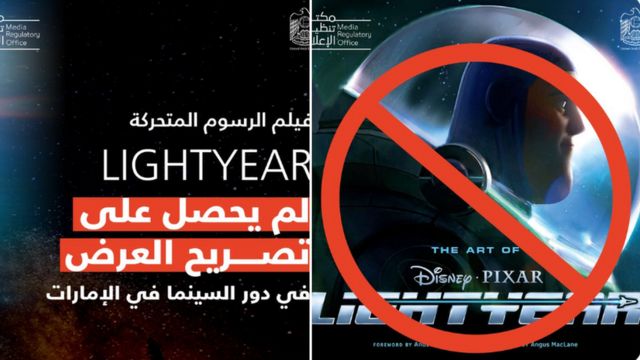In the Muslim world, there is a more or less successful campaign against the animated film “Lightyear” (known as “Buzz Lightyear” in the Russian version) by Disney Pixar. The reason is a scene of a lesbian kiss and the refusal of the film’s producers to remove it for distribution in Muslim countries.
As a result, the film was banned in Bahrain, Egypt, Indonesia, Iraq, Jordan, Kuwait, Lebanon, Malaysia, Oman, Qatar, Saudi Arabia, and Syria. It was initially allowed to be shown in the United Arab Emirates but was taken down after protests from the conservative Muslim community.
Currently, Muslims in Kyrgyzstan are also trying to remove the film from public screening, with an age restriction of 18+ if it is allowed.
Of course, for many who have an idea of the kind of content consumed by Muslim children and teenagers with access to social media, Netflix, etc., banning the movie because of a scene like this may be seen as a success. It’s like trying to build sandcastles in a small trench right on the seashore – it will still be washed away by the tide.
Nevertheless, apart from the general Islamic attitude of doing what is in our power and relying on Allah’s outcome, there is a practical sense to such an approach in this case. Without this sense, the embassies of countries captured by the LGBT lobby in Muslim countries would not fly their flags on their territory.
By doing so, they are trying to “mark their territory” at least in those hostile environments where, praise be to Allah, there is still public space for this ideology in Muslim countries.
Therefore, by demanding the removal of unacceptable content from such cinematic productions, Muslim communities are dictating their own rules of the game and thus also “marking their territory”. And this becomes not only an act of global cultural war but also an act of consolidating their sovereignty on their territory.
Even if TikToks, Netflixes, etc. circumvent these bans in the online space and flood it with a sea of similar content, Muslims at least show in the offline space that their rules apply on their own territory.
Therefore, it makes sense for the Muslim community, not only in Kyrgyzstan but in all Muslim countries and post-Soviet regions where this animated film is allowed to be shown, to lobby for its removal.

